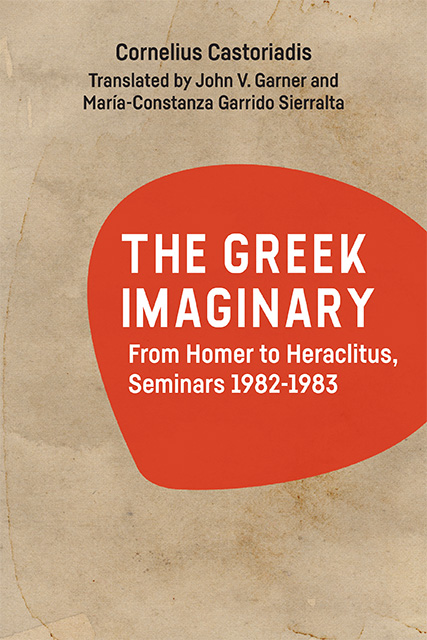VII - Seminar from January 12, 1983
Published online by Cambridge University Press: 20 October 2023
Summary
To begin, I would like to pick back up and conclude with Greek religion by specifying the four following points, formulated in a negative way: Greek religion is not a revealed religion; it does not accord any privilege to anthropogony; it contains no promise of immortality; its gods have no “national” character, i.e. they are posited as universals.
First, thus, Greek religion is not a revealed religion. For us this is no doubt something obvious, the recollection of which isn’t pertinent except for those who live in the heart of a religion of revelation. But what’s essential is the link between this absence of revelation and the primary imaginary grasp of the world in Greece. There’s no revelation and thus no dogma, no truth ne varietur resting on a transcendent authority. This, for starters, allows for considerable variation in the theological tradition, the coexistence of different theogonies (Homer, Hesiod, and doubtless also other traditions), the local variations of numerous myths. There’s a possibility for transformation, for movement, which would remain abstract were there not also human collectivities willing and able to make something of them. And, in effect, that’s what happened; this abstract possibility became a discussion of social representation. We see here again the traps that are offered us by the causalist interpretations, the explanations that want to take things back to univocal factors in history. For, the absence of revelation and of dogma is not at all a special creation of the Greeks; it’s even the most ordinary case, at least before Judaism. And similarly, nothing is more common than variations in the tradition, in the myths of each society. By starting with a Native American myth, Lévi-Strauss wrote the four volumes of Mythologiques, extending his analysis through innumerable transformations and variants into hundreds of other stories. The simple variation of the representation as such would not be cause for a calling into question the social representation, in Greece any more than elsewhere. But with the help of other elements it does allow for its discussion and, in the end, for it to be called into question.
- Type
- Chapter
- Information
- The Greek ImaginaryFrom Homer to Heraclitus, Seminars 1982-1983, pp. 115 - 136Publisher: Edinburgh University PressPrint publication year: 2023



